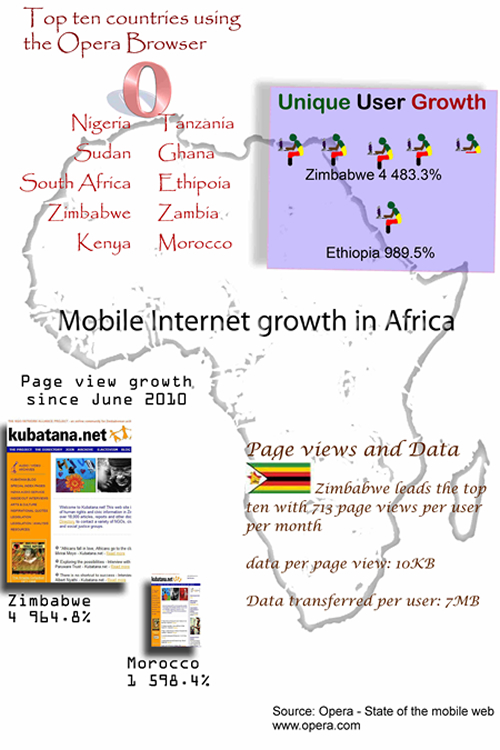Arts Factory Vin d’Honneur – Slideshow
Thursday, October 13th, 2011 by Upenyu Makoni-Muchemwa
Celebrating the donation of furniture and equipment to Pamberi Trust, and a small ground breaking ceremony for the arts factory NGO house at 78 Kaguvi St, Harare.
Amnesty International: Left Behind – A Slideshow
Wednesday, October 12th, 2011 by Upenyu Makoni-Muchemwa
Pictures from the drama performed by the Young Voices Network at the report launch of Left Behind: The impact of Zimbabwe’s mass forced evictions on the Right to Education by Amnesty International Zimbabwe
Doing it for myself
Tuesday, October 11th, 2011 by Varaidzo Tagwireyi“It is easy to be independent when you’ve got money. But to be independent when you haven’t got a thing–that’s the Lord’s test.”
Mahalia Jackson
These words have really challenged me, as I hope they will challenge many of you. It makes me think of women of the old school, like my mother, who, though widowed early on in her married life, worked hard and struggled on, to look after us, independently. But it seems that women like this are now a dying-breed. When I think about the young women of Zimbabwe, I feel frightened. Even though some of us are ambitious, hardworking and fairly, independent, the majority of us are far from even being able to take care of ourselves, on a very basic level. Times are hard, and with unemployment levels topping 90%, being an independent young woman, is far easier said than done.
Despite how hopeless our economic situation seems I feel as though many young women are not even bothered with independence anymore. Faced, with such a tough economic environment, a lot of us have found it easier to just expect someone else to look after us, with many young women giving up on independence, and instead, seeking out moneyed men to look after them. These young women are making use of their erotic power to get men to take care of them, and in so doing, freeing themselves from the responsibility of their own lives. What these women don’t realise it that they are creating their own monsters.
I mean common sense should tell you that you can’t rightly expect to receive resources without paying for them. All along, unbeknownst to you, the metre has been running. It may not happen today, but eventually your sponsor will get their money’s worth. One may decide to beat it out of you, while another feels that he now has a licence to control you, and another still feels that it gives him the right not to use a condom. And how can you say no to him, when he has supported you for the last year or so. Of course, you can’t say no to him now. You feel beholden, and will therefore comply, right. And what happens if one day he shows up, and asks for it all back. Unotangira pai? Where will you even begin to source this money?
One of my aunts, a very wise woman, once told me, “Never accept something from a man that you can’t afford to give back.” This advice might be a little extreme, but I think that one lesson we have to learn from it is to not let ourselves be dis-empowered in relationships, by not being independently functional, at the very least.
Police Stories: What is proper procedure for spot fines anyway?
Tuesday, October 11th, 2011 by Upenyu Makoni-MuchemwaI’m beginning to think that my car is a magnet for attracting spot fine roadblocks. I was stopped again at a roadblock this morning. From previous experience I was semi prepared for another sit-in.
This morning’s police officer was nicer, but used the same threats. He asked for my driver’s license and then inspected my car. Finding a faded rear reflector (pictured above) the officer told me I would have to pay a $10 spot fine.
I told him I had no money and could not pay there and then, but was happy to be given a ticket to pay later.
The officer told me that they would take my car to the nearest VID, insisted that the spot fine had to be paid immediately, and told me to call someone. Another officer even came by and told me to call someone to bring the money for the fine.
I refused and told him again to give me a ticket. Finally, the officer took down my car’s license plate number and my name, and told me to replace my reflector.
Later, I spoke with Superintendent Andrew Phiri at Zimbabwe Republic Police General Headquarters who clarified what is supposed to happen when you are stopped at a roadblock and asked to pay a fine.
When you have been stopped by the police at a roadblock and you are found to be without a driver’s license, proper registration or any other fineable offense you have two options:
The first is to pay the spot fine the second is to be given a ticket.
If you pay the spot fine you are to be given a green form, which is your receipt. The green form is an admission of guilt form no: Z69J.
If you disagree or refuse to pay the fine, you may appear in court to contest. The police at the roadblock should give you a white form no: 265. The form will give you the court date on which you are to appear in court. The court date is set for between 7 and 14 days after the date of issue of the form. You may also pay the fine on or before this date.
If you do not have your driver’s license you should be issued a ‘production form’ and you have seven days to take your driver’s license to the nearest police station, where upon the ticket will be cancelled.
Police at roadblocks may use their discretion in issuing tickets and giving cautions.
If you are threatened with having your car impounded or taken to VID this is a scare tactic to make you pay the fine. The police are not legally enabled to do so.
Freebies for all
Tuesday, October 11th, 2011 by Natasha MsonzaParallels can be drawn between the 1997 cash payouts to the war veterans and the recent disbursement of ‘youth development funds’ to the youth in Zimbabwe. The objectives of both programmes were to ‘economically empower’ ordinary citizens. While the war veteran payouts were just that, the YDF loans to the ‘youth’ are actually expected to be returned at some point. Under pressure from war veterans demanding payment for their role in the liberation struggle, President Robert Mugabe ordered unbudgeted payouts of 50,000 to each. The local dollar subsequently fell 71.5 percent against the greenback while the stock market crashed by 46 percent as investors rushed for the US dollar.
These unplanned payouts to war veterans went down the annals of history as the event that marked the beginning of the collapse of the country’s economy.
The ‘loans’ recently awarded to selected ‘youth’ in Zimbabwe may not accomplish glory of a similar magnitude, but what may follow can be anyone’s guess.
In the spirit of economically empowering the youth in Zimbabwe, the government – through the Ministry of Indigenisation and Empowerment – availed funds to be used in bettering the lives of youth through income generating projects. The funds are being managed through CBZ Bank, and insurance giant Old Mutual is part of a $10 million grant deal to the YDF. It is a big wonder what made the company agree to such an arrangement which stands to undermine its financial position. When companies like Old Mutual start to simply give away their net worth as gifts, we should get worried. But perhaps it is a clever way to escape the 51% remission guillotine.
In the YDF programme, there is no recovery plan, no obligation, and no collateral – just “young people who have benefited from the facility are encouraged to pay back the loans so that the funds can be extended to other eligible youth in revolving mode”. Are you kidding? So the 800+ lucky ‘youth’ whose names were published in recent press releases as beneficiaries are expected to create thriving businesses that will in the short term make profits from which the loans will then be paid back so that others can benefit.
There is no stipulated timeline by which the loans should be returned, so technically these are indefinite loans. There are just too many holes in this programme. As economist Erich Bloch would say it; the indigenization issue is being handled with a “total disregard for all economic fundamentals or principles.”
This could well be a grand scheme by some well placed individuals to throw away populist money and obtain a few kick-backs in the process. Can imagine obscure groups like Upfumi Kuvadiki getting such loans and actually being expected to pay them back, laugh out loud. We are assured that there are no ‘ghosts’ on the beneficiary list. Probably. I personally know someone whose name appeared on that list. To the best of my knowledge and without being judgmental, this person has plans to purchase a residential stand, possesses no entrepreneurial skills and actually got a consultant to develop his business plan that got him the loan. He wouldn’t say exactly how much he is going to get, but he invited me to ‘also apply and stop being jealous and missing out’.
The requirements are that you just fill in a form, submit a business plan, company registration document, identification documents and Bob’s your uncle, literally. You also need to prove that you are ‘legally constituted’ in a partnership; and if you are not, you are expected to ensure this happens within three months after receiving the loan (why bother then?).
Am I missing something here? Or perhaps I am just being jealous? Well, if you can’t beat em join em hey?
This is Zimbabwe.











